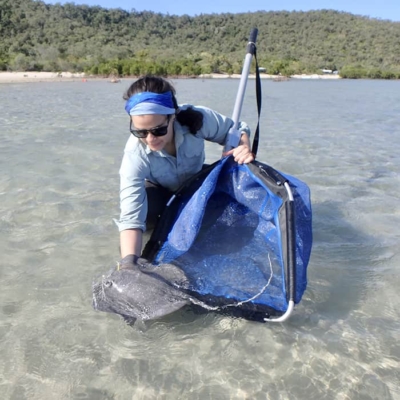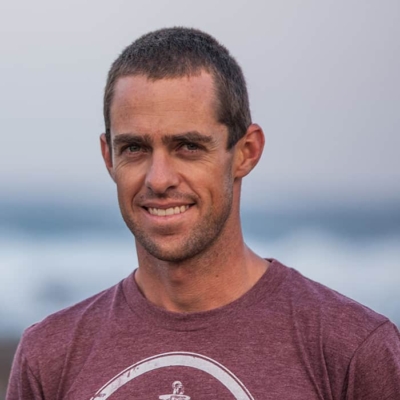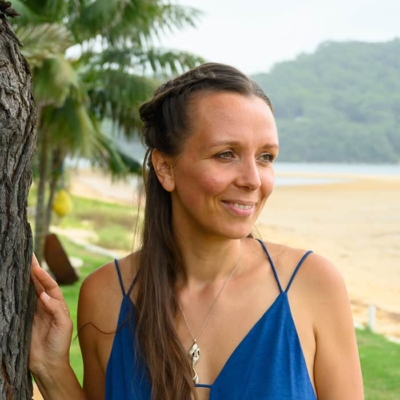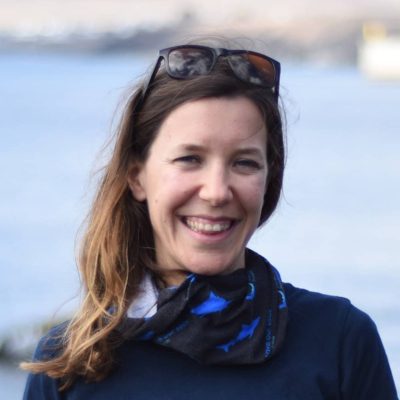REVIEW PANEL



REVIEW PANEL
A team of independent experts
The Independent Review Panel (IRP) was set up to ensure that all areas delineated as Important Shark and Ray Areas (ISRA) are subject to peer-review and supported by the best available science. Our team of experts, led by Prof. Colin Simpfendorfer, have not been involved in the regional workshops, but have a wide range of expertise in the fields of shark, ray, and chimaera ecology and an in-depth understanding of species, habitats, and the ISRA Criteria.

Prof Colin Simpfendorfer
Colin is an Adjunct Professor at James Cook University and part-time Professor at University of Tasmania in Australia. He has more than 30 years of experience in researching sharks and rays, and has published extensively in the scientific literature on their biology, ecology, fisheries, and conservation. He was Co-Chair of the IUCN Species Survival Commission Shark Specialist Group (2013–2020) and sits on Australia’s Threatened Species Scientific Committee.

Dr Ana Barbosa Martins
Born and raised in São Luís, northeastern of Brazil, Ana’s interest in marine science began at an early age and she pursued a career working on sharks and rays. She completed a BSc in Biological Sciences and a MSc in Biodiversity and Conservation at the Universidade Federal do Maranhão, studying the supply chain and conservation status of sharks based on traditional fisher knowledge. Ana next pursued a PhD at James Cook University, Australia, where she integrated biotelemetry approaches and stable isotope analysis to refine the ecological roles of juvenile stingrays in coral reef ecosystems. As a postdoctoral researcher at Dalhousie University, Ana worked on a multiyear project aiming to unravel the global shark meat trade using a combination of field work and Bayesian statistical modeling. Ana is also collaborating on projects across the globe encompassing shark and ray spatial ecology, functional traits, meat consumption, nutrient composition, and cultural connections.

Dr Ryan Daly
After gaining a bachelor’s degree in zoology and ocean and atmosphere science from the University of Cape Town, Ryan completed his Master’s degree in marine biology at Rhodes University, South Africa. Since 2010, he has led studies on the spatial ecology and migration dynamics of apex marine predators, such as bull sharks and giant trevally, in southern Mozambique. The work on bull sharks earned him his PhD from Rhodes University in South Africa in 2014. Between 2017 and 2019, Ryan held the position of Research Director for the Save Our Seas – D’Arros Research Centre in the Seychelles where he coordinated marine research projects on multiple shark species, giant trevally, mantas, turtles, and coral reefs. Currently Ryan is a marine scientist at the Oceanographic Research Institute in Durban, South Africa where he focusses his research on understanding the spatial ecology of top predatory sharks, their conservation, and interaction with Marine Protected Areas.

Dr Vanessa Jaiteh
Growing up in the mountains of landlocked Switzerland, Vanessa took her first gulp of seawater at age nine and was hooked. In 2008, she received her BSc in Marine Biology from James Cook University, in Townsville Australia, then moved to Murdoch University in Perth where she completed her Honours on threatened, endangered and protected species bycatch in a demersal fish trawl fishery (2009), followed by a PhD on shark fisheries and shark fishing livelihoods in eastern Indonesia (2017). After moving to Palau in 2015, she worked on various fisheries-related consultancies and research projects in the Pacific region through the Coral Reef Research Foundation, before taking on the role of fisheries scientist at the Ministry of Natural Resources, Environment and Tourism in Palau. In 2019 she received a Swiss-funded postdoc fellowship and moved her family to New Caledonia to study bycatch in Palau’s tuna longline fishery. She is currently wrapping up her second postdoc, where she looked at safety violations, labour abuses and Illegal, Unreported, and Unmanaged (IUU) activity in Ghana’s industrial, semi-industrial, and artisanal fisheries.

Eva Meyers
Eva is a conservation biologist from Germany but that was raised in South America. For the past 15 years, she has been involved in various policy, research, and conservation projects across the globe. She has extensive experience as a project manager, field researcher, and founded knowledge in international nature and biodiversity conservation, as well as environmental policy. Eva has worked as a consultant for the United Nations (UN) Convention on the Conservation of Migratory Species of Wild Animals (CMS) and the CMS Sharks Memorandum of Understanding. For the past six years she served as programme management officer for the UN Environment Programme coordinating an intergovernmental platform addressing the conservation and sustainable use of migratory waterbirds.
She co-founded the Angel Shark Project, a collaboration between various institutions including the Leibniz Institute for the Analysis of Biodiversity Change, where she is based now, aiming to safeguard the future of Critically Endangered angel sharks. Eva is also a member of the IUCN Species Survival Shark Specialist Group and the German Elasmobranch Association (DEG).

